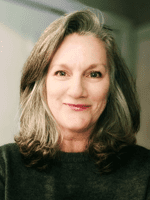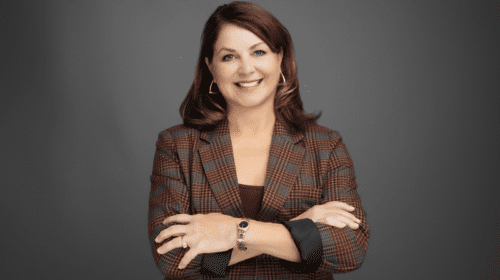Rebecca Ponton: Please discuss what you feel is important for women to know either about founding a business or investing in another woman’s venture.
Carrie Colbert: Allow me to give a little color on how I ended up here in the first place…
 I was raised in a small town in the Texas Panhandle. I was valedictorian of my class, and my high school counselor encouraged me to study engineering. The lone engineer in Perryton happened to be a petroleum engineer, so he pushed me in that direction. I studied petroleum engineering at the University of Texas, and I graduated at the top of my class with a 3.98 GPA. Then, of course, the next step was to move to Houston where all the oil and gas jobs were.
I was raised in a small town in the Texas Panhandle. I was valedictorian of my class, and my high school counselor encouraged me to study engineering. The lone engineer in Perryton happened to be a petroleum engineer, so he pushed me in that direction. I studied petroleum engineering at the University of Texas, and I graduated at the top of my class with a 3.98 GPA. Then, of course, the next step was to move to Houston where all the oil and gas jobs were.
I began my career at Anadarko and worked there for five years. But then I was recruited to Hilcorp. The decision to work at Hilcorp was truly life changing. Founder Jeff Hildebrand structured and ran the company in such an entrepreneurial way. I started on the engineering side of the business, then got my MBA from UT while I was working and moved over to the other side of the business – finance, investor reporting, strategic planning, etc. Being part of the leadership team at Hilcorp for 12 years taught me so many invaluable entrepreneurial lessons which I carry with me today.
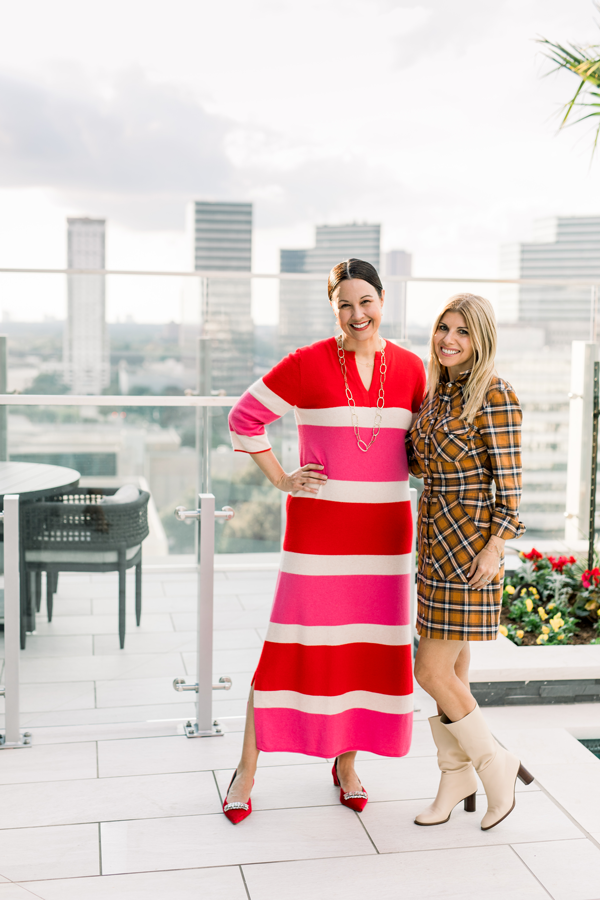 Besides [what I learned], the experience was transformative financially. Part of that entrepreneurial structure was a mechanism that allowed employees to have ownership. Given that I was there during a time of great growth and some significant transactions, I was able to create a nice amount of personal net worth through that ownership.
Besides [what I learned], the experience was transformative financially. Part of that entrepreneurial structure was a mechanism that allowed employees to have ownership. Given that I was there during a time of great growth and some significant transactions, I was able to create a nice amount of personal net worth through that ownership.
That allowed me to “retire” from the energy industry almost seven years ago when I was 38. I was never personally passionate about the industry. I was passionate, though, about being an entrepreneur; I just wanted to do it in a role that fulfilled me personally a bit more than my previous career.
With that aim in sight, I set out to figure out what I wanted my life to look like professionally speaking. Long story short, I started connecting with female founders and investing my own personal capital into their businesses. I angel invested in female-led companies for about five years. During that time, I had such great success, plus I had a great time while doing it! That led to tremendous deal flow coming directly to me.
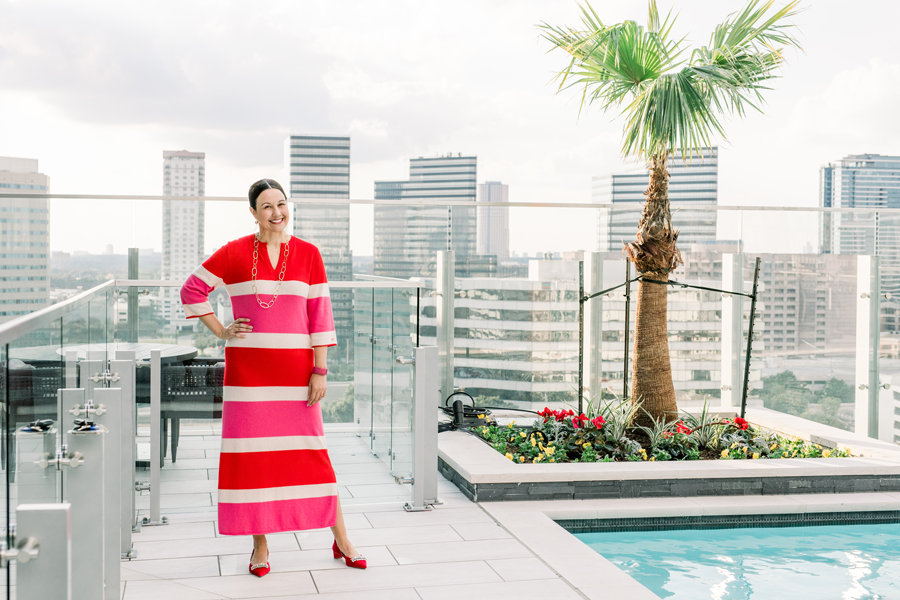 With more amazing investment prospects than I could personally fund, I created Curate Capital, a venture capital fund that invests in businesses by women for women. I certainly never had “venture capitalist” on my vision board. Indeed, I am a bit of an “accidental” venture capitalist. But I am truly in my professional sweet spot, using all of my strengths, experiences and connections to help other women accelerate their paths to success. And that is something that makes me smile each and every day!
With more amazing investment prospects than I could personally fund, I created Curate Capital, a venture capital fund that invests in businesses by women for women. I certainly never had “venture capitalist” on my vision board. Indeed, I am a bit of an “accidental” venture capitalist. But I am truly in my professional sweet spot, using all of my strengths, experiences and connections to help other women accelerate their paths to success. And that is something that makes me smile each and every day!
RP: While you don’t necessarily seek (or focus on) financing women-owned energy ventures, would you like to see more women founders in energy? What sort of deals would you be looking for (oil and gas E&P, renewable projects, etc.)? How do you think it would impact the industry to have more women at the helm of energy companies?
CC: In my early days in the industry, I certainly felt the pressure to conform to who I thought I should be. My perception was this: In order to fit in and be taken seriously, I needed to emulate everyone else around me. I needed to dress like all the other engineers, talk like all the other engineers, behave like all the other engineers and think like all the other engineers.
Only years down the road did I realize this profound truth: The world only benefits when each of us shows up as our true unique selves. The world isn’t served by us being part of an echo chamber. Our value is in our differences. It’s only when we have the courage to show up as our authentic selves that we bring true value to the table.
In other words, great minds don’t think alike. Great minds challenge one another. Great minds consider that there are multiple ways to get to the same goal while still adhering to the same values.
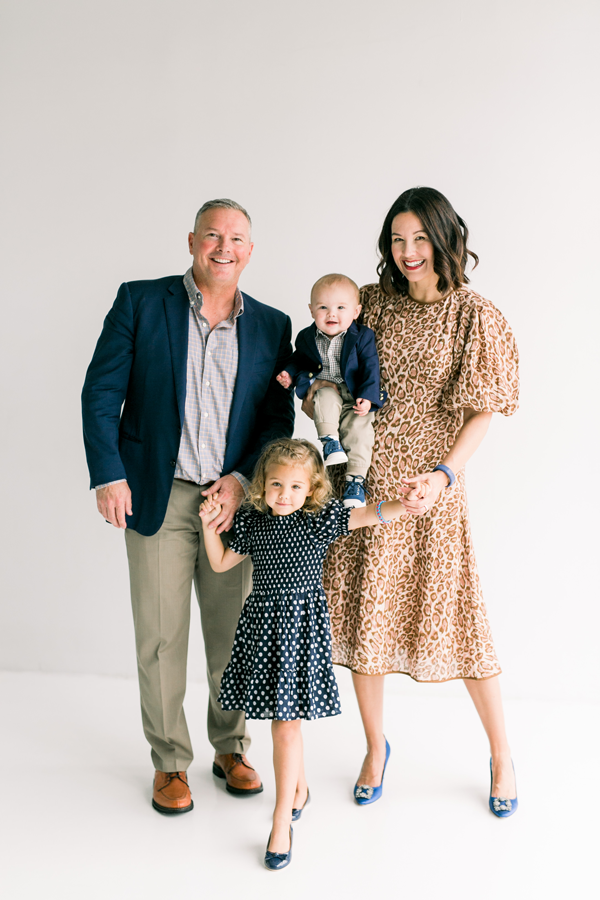 With those concepts in mind, I unsurprisingly support more women at the helm of companies in any and all industries – energy included!
With those concepts in mind, I unsurprisingly support more women at the helm of companies in any and all industries – energy included!
RP: What do you look for in a potential portfolio investment?
CC: At Curate Capital, we view the world through the lens of “by women for women.” We are industry agnostic, but rather we look for the very best businesses being built by women for women. Female founders are uniquely suited to address the pain points of female consumers, as quite often she is her, so to speak.
Given that women control upwards of 85 percent of household purchasing decisions, this isn’t a small niche. Rather, women are innovating on previously unaddressed needs and creating incredible businesses in the process.
 RP: Talk about your favorite success story in regard to a venture you have funded.
RP: Talk about your favorite success story in regard to a venture you have funded.
CC: Without a doubt, when you ask about my favorite success story in terms of a company I funded, I simply must tell you about Packed Party. I talk about Packed Party and its founder and CEO Jordan Jones quite often for several reasons. First, Packed Party was the first investment I made in a female-founded business after I retired from oil and gas. Second, Packed Party is my biggest personal investment in a female-founded business. And third, Packed Party has been such a huge success!
Jordan was 23 when she founded the business eight years ago. I was a fan and customer of the business, and we followed each other on Instagram. When she saw that I was traveling to Austin for some meetings at UT, she asked if we could get together. She wasn’t ready for an investment that day, but we started laying the groundwork for our relationship, building mutual trust and respect. Shortly thereafter, when she was ready to raise capital, she turned to me and I answered the call.
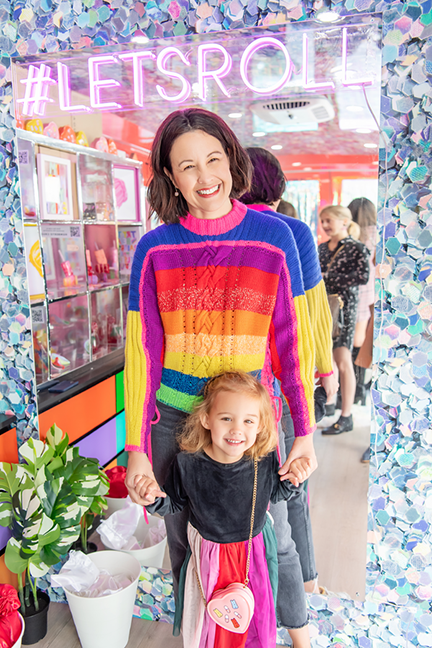 I first invested in Packed Party in 2016. At the time, the company had fewer than a dozen skews of product. They were working out of a rented apartment and had no real office or warehouse space. And they were digging out from under an onerous licensing agreement. Today, only six short years later, Packed Party has thousands of products, is on the shelves of major retailers like Walmart and Whole Foods, to name a few, and is one of the hottest lifestyle brands with millennial females. Plus, Jordan won the Forbes 30 under 30 award in 2017.
I first invested in Packed Party in 2016. At the time, the company had fewer than a dozen skews of product. They were working out of a rented apartment and had no real office or warehouse space. And they were digging out from under an onerous licensing agreement. Today, only six short years later, Packed Party has thousands of products, is on the shelves of major retailers like Walmart and Whole Foods, to name a few, and is one of the hottest lifestyle brands with millennial females. Plus, Jordan won the Forbes 30 under 30 award in 2017.
I could not be prouder to be invested in Packed Party (both personally and now via Curate Capital)! The company has done so many things right that are great takeaways for us all. Most importantly, Jordan knows her customer on a deep level. She knows what she likes, how to market to her, where she shops, what social media platforms she uses and so on. When you know your customer on a deep level, you can then do two crucial things exceedingly well: (1) Create products or services that she really wants, and (2) Effectively market your products or services to her. It all starts with knowing her intimately.
RP: In previous interviews, you have stressed that the issue really is not a lack of female founders, but a scarcity of female investors. How do you influence other women to become investors? What would you say to someone like Melinda Gates or MacKenzie Scott (formerly Bezos), who have access to large sums of money, and could really make a difference in hastening what you have referred to as the “rise in the female economy”?
CC: Let’s face it: The stats are not great and they haven’t even shifted in the right direction. Female founders get less than three percent of all venture capital dollars in the U.S. In 2019, that number was 2.7 percent. In 2020, that number was 2.2 percent. And for the first half of 2021, that number stands at 2.1 percent.
These low funding statistics are despite the fact that women start almost half of all businesses in the U.S. Also, relevant to our thesis of investing in businesses “by women for women,” women control up to 85 percent of all purchasing decisions in U.S. households.
While it is, of course, abhorrent that women get so little funding, I’ve learned not to lead with that in investment pitches. Certainly, many are on a mission to change that stat – and there’s a time and a place for that. But when I’m meeting with a prospective investor, I emphasize this perspective instead:
This funding discrepancy has created a huge opportunity arbitrage!
Not only are female-led businesses underfunded, but they generally overperform results-wise. There are several respected reports that support this assertion. Add to those two factors the fact that I have an “inside track” to these deals via my long-standing relationships within the female founder community and investing in women just makes great business sense!
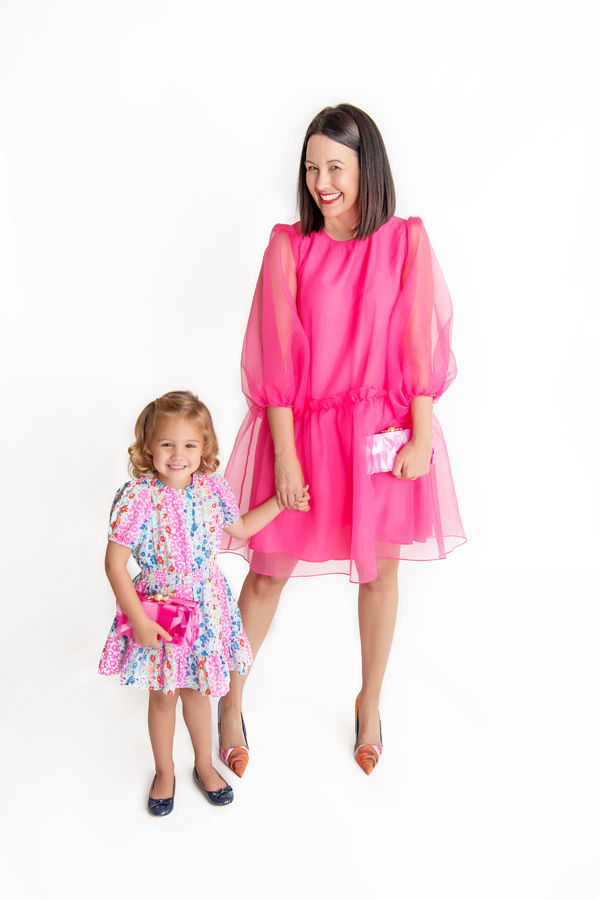 RP: On the other end of the spectrum are “everyday women” who may only have small amounts to invest. Have you launched your grassroots crowdfunding initiative yet? How do women become involved with that?
RP: On the other end of the spectrum are “everyday women” who may only have small amounts to invest. Have you launched your grassroots crowdfunding initiative yet? How do women become involved with that?
CC: Since launching Curate Capital, I’ve been passionate about breaking down the barriers to venture capital. For so long, venture capital has been perceived as this black box that only a few privileged people were able to understand and invest in. Heck, I didn’t even know that much about venture capital before I decided to start a fund myself!
So, I want to make venture capital accessible in two ways. First, I want to make it easier to understand. Whether through my social media platforms, my email newsletters or on our website, I talk about it in everyday terms. While I, of course, aim to be accurate in my discussions, I also aim to eliminate much of the jargon and lingo that prevents people from understanding what is actually a pretty simple investment vehicle.
The second way I want to make venture capital more accessible is by creating investment opportunities for the “everyday woman.” For almost two years now, I have earnestly sought ways to make this happen. As you might know, the federal government puts certain constraints on us as we are raising our venture capital fund. Namely, all investors must be accredited investors.
Side note: This is a perfect example of the jargon scaring people away! What is an “accredited investor”? You may be accredited and not even know it! The term simply means that you make $200,000 a year individually or $300,000 a year as a household or you have a net worth of over $1 million (not counting your primary residence).
Back to the subject of crowdfunding… As you may have seen, there are all sorts of crowdfunding platforms that have popped up online. But what you may not know is that you still aren’t allowed to crowdfund into a fund. It’s an outdated remnant of an old regulation that will hopefully change in the future. But I kept coming back to this conclusion: There is no good way to bring “everyday” investors into a venture capital fund at a low dollar amount.
However, I am excited to say that we will be announcing a new partnership in Q1 2022 that will finally provide that option! It’s been a long time in the making and it’s with a group that has worked directly with the SEC to make a way for this to happen. So, stay tuned. Follow us on social media (@carriec and @curate.capital on IG) and on our website (curate.capital) for all the details!
RP: Is there a “dream investment” you would love a female entrepreneur to approach you with?
CC: I’m not sure there’s a dream investment, per se. That’s the beauty of what I do: I get to be impressed each and every day by the incredible ideas that these wonderful women are generating; I don’t have to dream up the ideas myself. Rather, I just have to spot the winners and then empower them to reach success more quickly.
On the flip side of the coin, I definitely have a wish list of dream investors! Shall I name just a few? Let’s put it out there in hopes of manifesting it! Here are a few who are atop my wish list:
- Sara Blakely of Spanx fame.
- Houstonian Janet Gurwitch, who founded Laura Mercier cosmetics, and has done so many amazing things in the beauty industry.
- Houstonian Tiffany Masterson, who founded and sold the skincare company Drunk Elephant.
But what truly encourages me and motivates me each and every day are all the women who have entrusted me with their hard-earned dollars. The fact that so many of them see the value proposition in what we are creating blows my mind! It’s truly humbling to have so many of my friends, my colleagues, my online followers and so [many others] believe in me in such a vested way!
Rebecca Ponton has been a journalist for 30+ years and is also a petroleum landman. She is the author of Breaking the GAS Ceiling: Women in the Offshore Oil and Gas Industry (Modern History Press; May 2019). She is also the publisher of Books & Recovery.
Oil and gas operations are commonly found in remote locations far from company headquarters. Now, it's possible to monitor pump operations, collate and analyze seismic data, and track employees around the world from almost anywhere. Whether employees are in the office or in the field, the internet and related applications enable a greater multidirectional flow of information – and control – than ever before.


